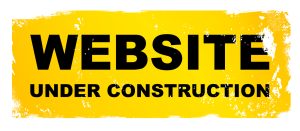EXPERIENCED AND PROFESSIONAL
Navigating the Loan Modification Process in Georgia:
Need help? Contact Us
Request a Appointment
In a challenging financial climate, many homeowners find themselves unable to meet their mortgage obligations. Whether it's due to a job loss, medical bills, or another unexpected life event, these circumstances can be overwhelming. If you're in such a situation, a loan modification might be the lifeline you need. If you're a Georgia homeowner, this guide aims to shed light on the loan modification process in your state.
What is a Loan Modification?
A loan modification is a restructuring of your existing mortgage in which your lender agrees to alter the terms of your loan. Changes could involve a reduction in the interest rate, an extension of the length of the term, a different type of loan, or even a reduction in principal. A loan modification can help you lower your monthly payment to a more manageable amount.
Loan Modification vs. Refinancing
While both loan modification and refinancing can lead to lower mortgage payments, they are fundamentally different processes. Refinancing involves taking out a new loan to pay off the existing one, typically at a lower interest rate or over a longer term. On the other hand, a loan modification adjusts the terms of your existing loan without requiring a new one. This is especially useful for those struggling financially, as it is often more challenging to qualify for a new loan in such circumstances.

Steps to Request a Loan Modification in Georgia
Reach Out to Your Lender:
If you're having trouble making your mortgage payments, the first step is to contact your lender or loan servicer directly. Don't wait until you've missed payments to do this. The earlier you reach out, the more options you have.
Document Your Financial Hardship:
You'll need to prove that you're undergoing financial hardship that prevents you from making your payments. This could be pay stubs showing reduced income, medical bills, or job termination notices. The specific documents required can vary from lender to lender.
Submit a Loan Modification Request:
Complete a loan modification request form provided by your lender. Be sure to fill out all necessary information accurately. You'll typically need to include information about your income, expenses, other debts, and assets.
Get a Professional Review:
It might be a good idea to have a housing counselor or attorney review your application before you submit it. They can help ensure you've completed everything correctly and maximize your chances of approval.
Await Response:
After you've submitted your application, the lender will review it and decide whether to grant the modification. They may also propose a different modification than the one you requested.
Trial Period:
If your application is approved, your lender may put you on a trial plan to ensure you can handle the new payment amount. This usually lasts three months. If you make all the payments on time, your modification will become permanent.
Georgia is a non-judicial foreclosure state, meaning your lender can foreclose on your home without going to court. Therefore, acting promptly and proactively in a situation of financial hardship is paramount to prevent foreclosure. Be sure to keep all communications with your lender documented and in order. Stay patient, as the process may take time.
© All Copyrights 2023 Metropolitan Realty Group
Website powered by LeadMode Digital Marketing

